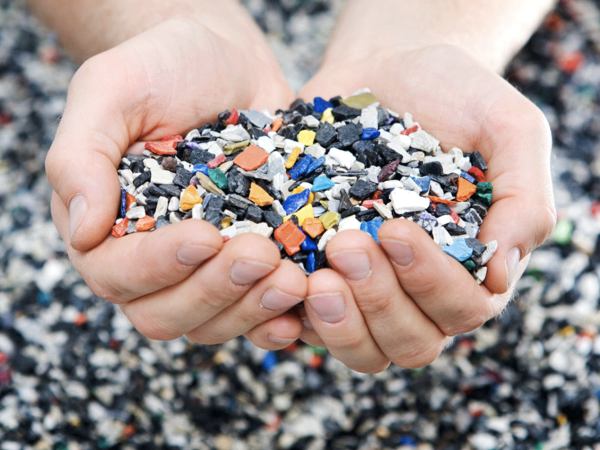Recycled plastics are plastics that have been processed and reused after their initial use. The process typically involves collecting plastic waste, sorting it by type and quality, cleaning it, shredding or melting it down, and then reforming it into new products or materials. This process helps to reduce the amount of plastic waste that ends up in landfills or oceans, and it also conserves resources by reducing the need for new plastic production.

